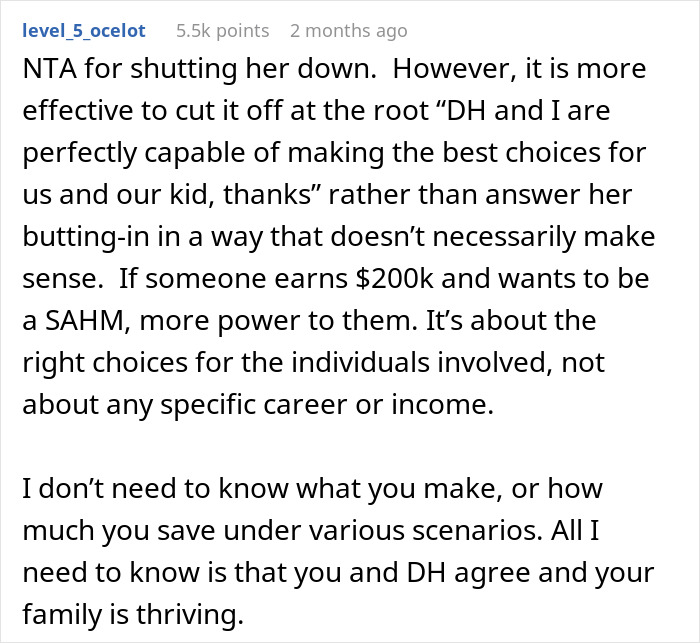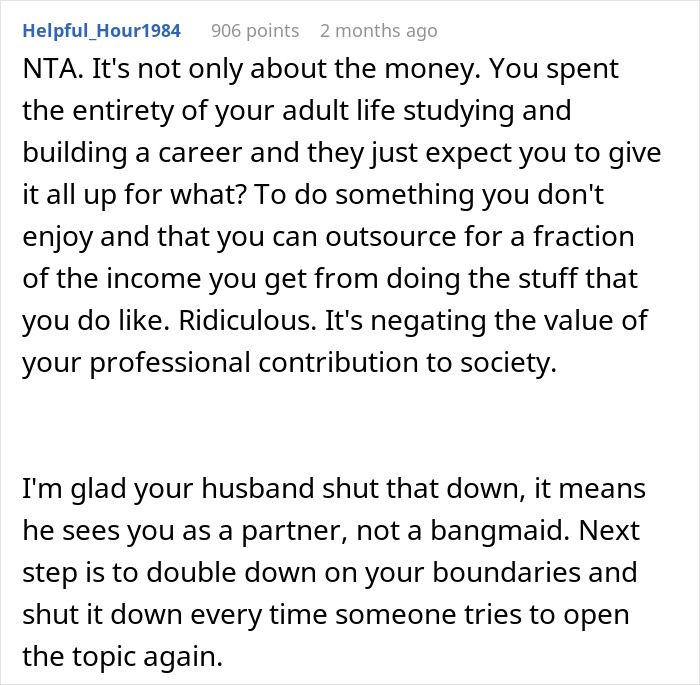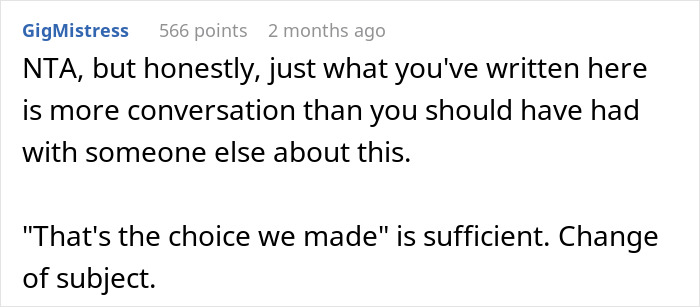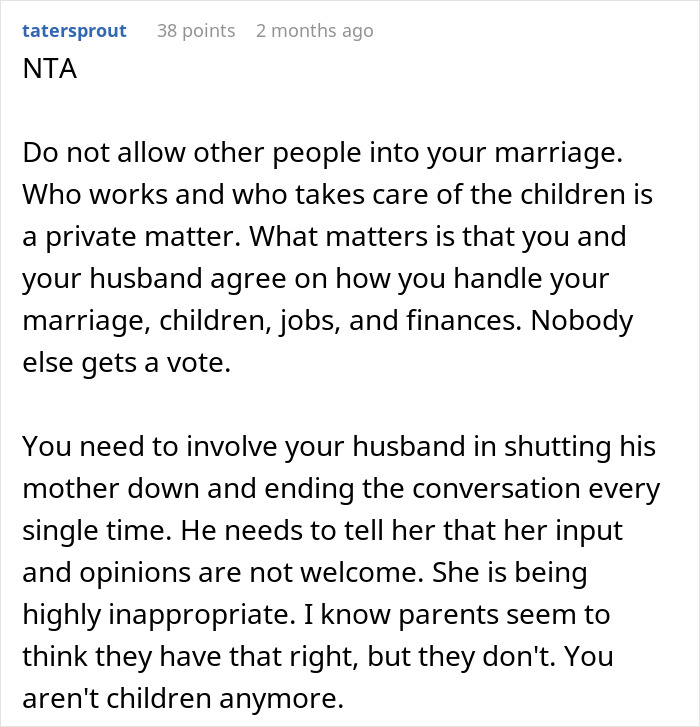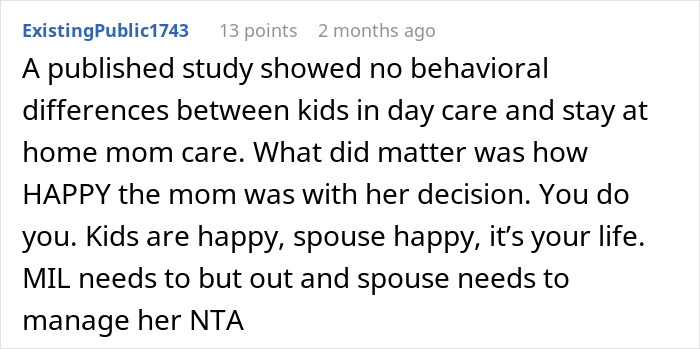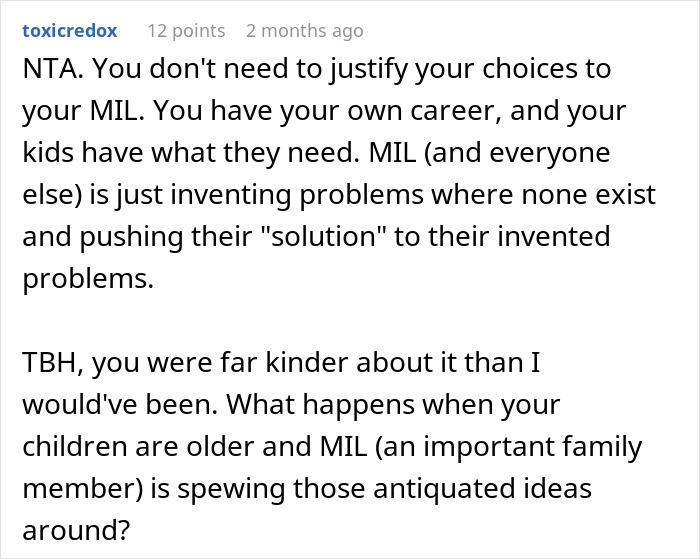Extended family is a double-edged sword. It offers additional support and connection, yet can also bring more tension and conflicts.
One woman recently made a post on the subreddit ‘Am I the [Jerk]?‘ about her mother-in-law being the source of the latter.
Apparently, the lady cannot make peace with the fact that her son’s wife continues to work now that they have kids, and is going out of her way to persuade the couple to reconsider their arrangement.
This woman is happy to work despite the fact that her husband is earning a lot of money

Image credits: Matilda Wormwood / pexels (not the actual photo)
But her mother-in-law wants her to stop and focus on raising their kids
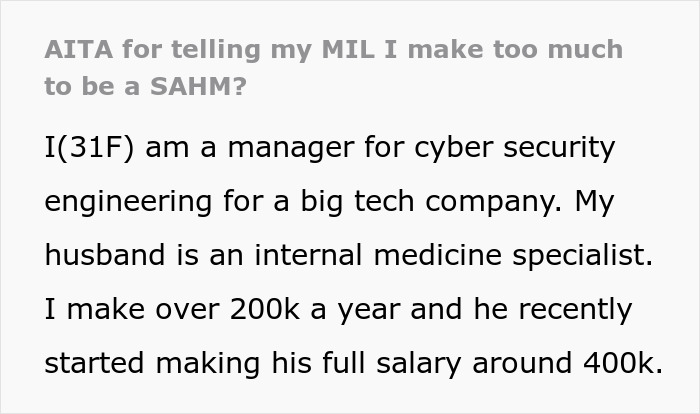
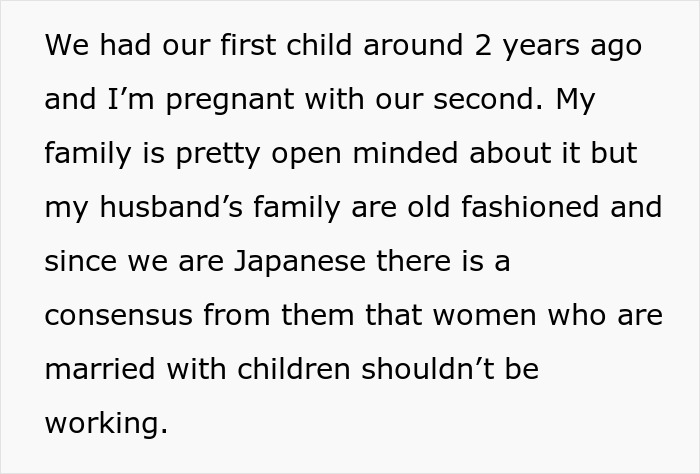


Image credits: Karolina Grabowska / pexels (not the actual photo)
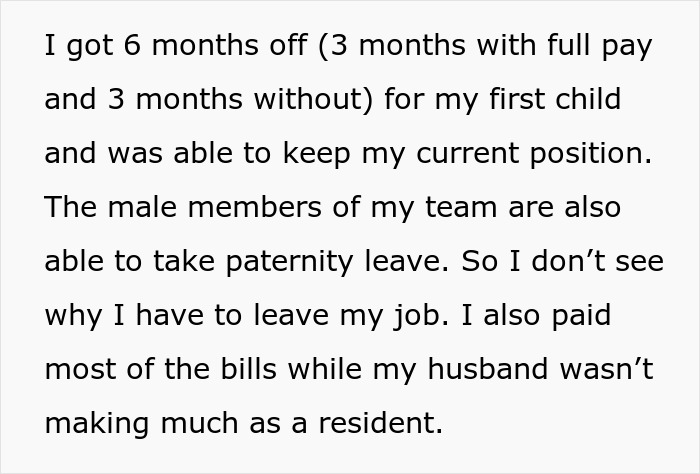
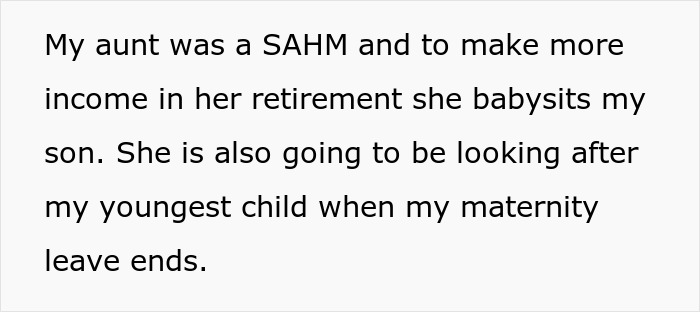
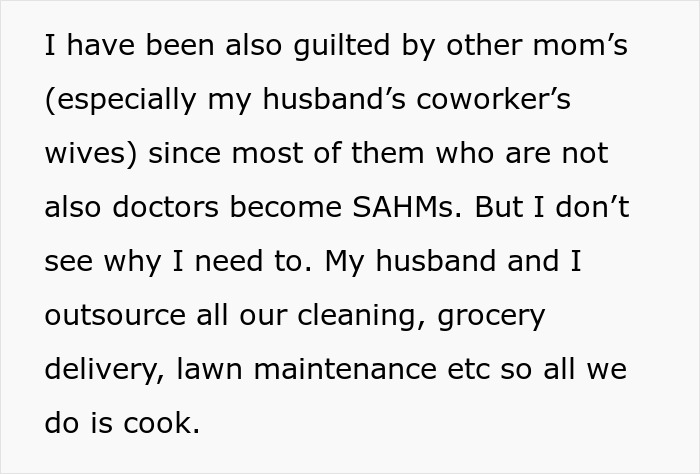

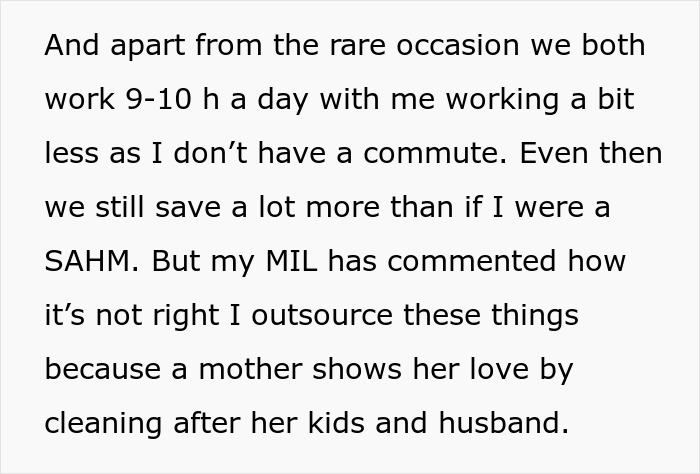
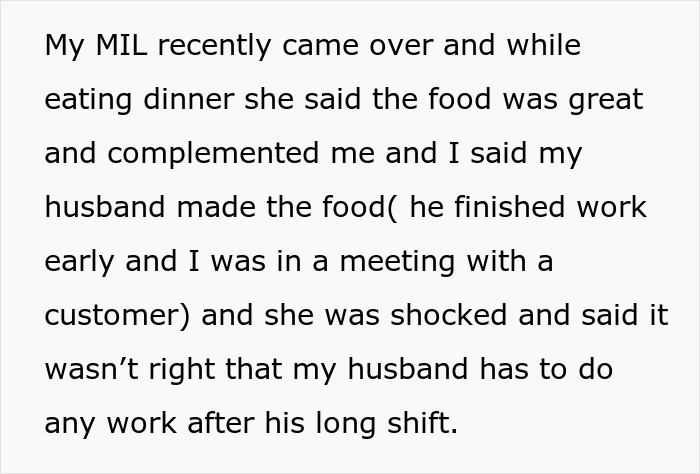

Image credits: prathanchorruangsak / envato (not the actual photo)



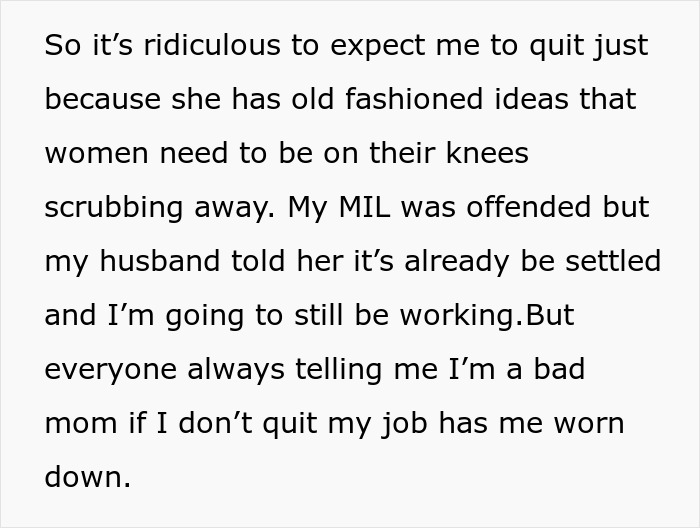
Image credits: anon
It’s a shame that the lady is too stubborn to appreciate the couple’s happiness
According to Jennifer Petriglieri, who is an associate professor of organizational behavior at INSEAD and the author of Couples That Work: How Dual-Career Couples Can Thrive in Love and Work, these partners do face unique challenges, so they must work out a way that lets both thrive. If they don’t, then regrets and imbalances quickly build up, threatening to hinder their careers, dissolve their relationship, or both.
For her book, Petriglieri did a six-year investigation into the lives of more than 100 dual-career couples, and found that they overcome the hurdles in their way by directly addressing deeper psychological and social forces—such as struggles for power and control; personal hopes, fears, and losses; and assumptions and cultural expectations about the roles partners should play in each other’s lives and what it means to have a good relationship or career.
So it’s cool to know that the Redditor’s husband stood by her and echoed his wife’s position to his mom.
Arguments could be made that such conflicts are, to a certain extent, unavoidable. Writer Megan Carnegie, for example, says that the historic formation of heterosexual family structures may be partly responsible for creating tension between extended family members, and form the basis of the trope of the meddling mother-in-law specifically.
After all, in some patrilineal societies, parents choose who their child marries, and once married, the daughter-in-law moves in with her husband’s family.
As the senior woman of the household in these arrangements, the mother feels she’s in charge of the domestic sphere, and has a higher social status and decision-making authority over her daughter-in-law.
A 2016 survey by digital lifestyle brand Fatherly showed that of those couples who do argue with their in-laws, 29% said it was about parenting style, followed by 15% who brought up politics, 14% said money and 4% said their in-laws needled them about career success.
Everyone has their own version of how a household should be run.

Image credits: Karolina Grabowska (not the actual photo)
People who have read her story are expressing their support for the woman and her husband
